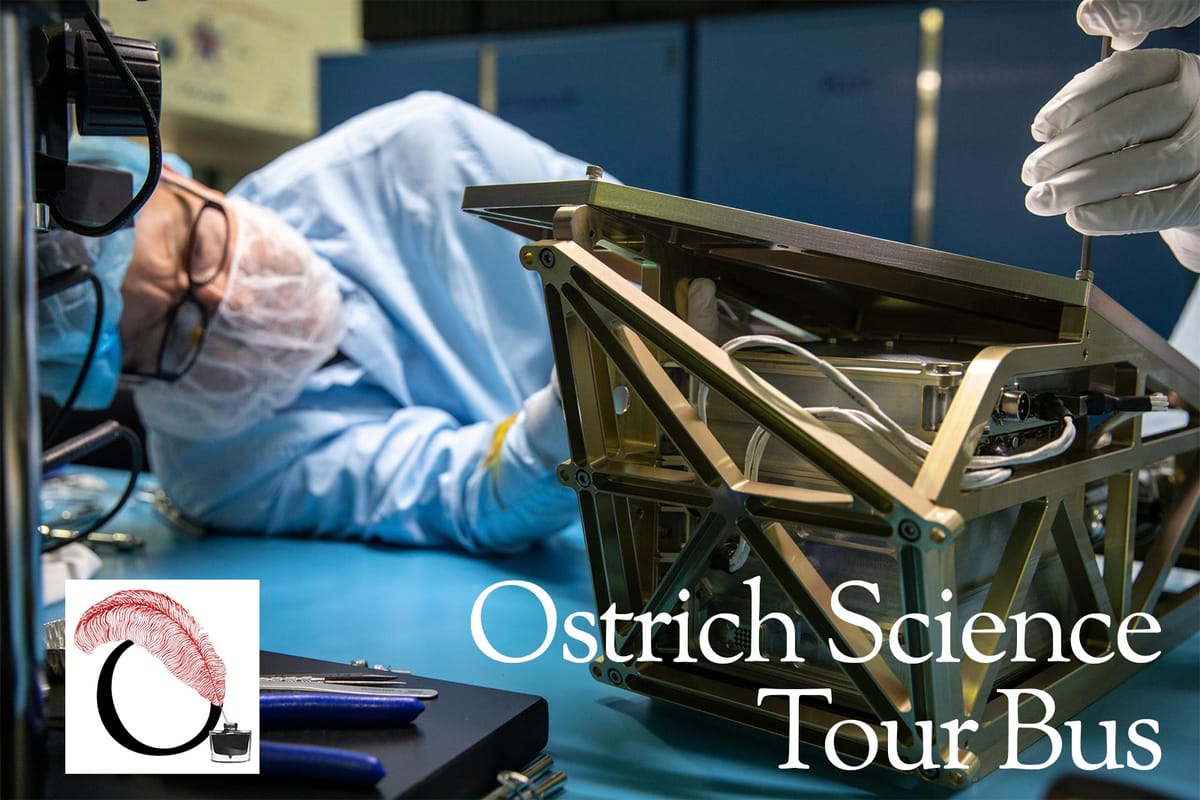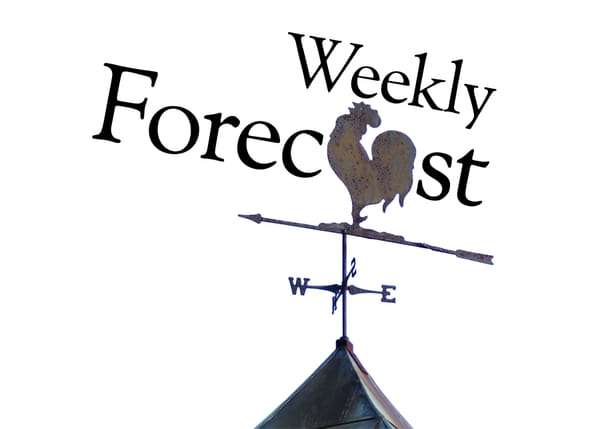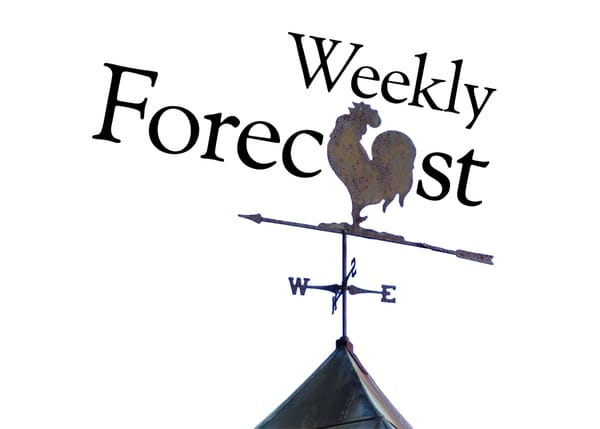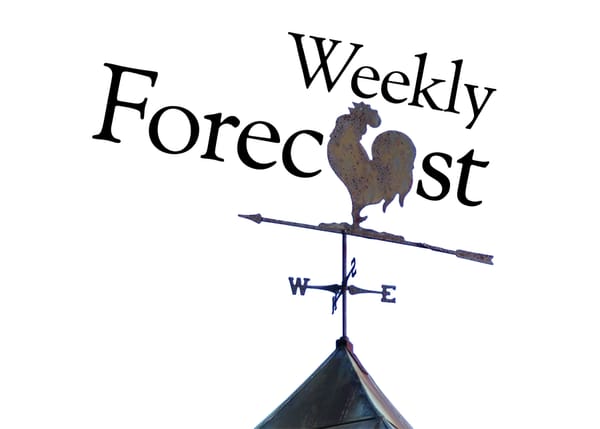Ostrich Science Tour Bus: Feb '25
Four surprising science highlights.

Apparently it isn't February anymore, a technicality that won't dissuade us from delivering your February feature. February has been a difficult month for the news media, in that we, the Ostrich and her bigger sisters, have been trying to report the news while trying not to know it. So we've been remiss in covering the stories you depend upon, by which I mean the latest whale news. With apologies, we bring you a long overdue edition of the Ostrich Science Tour Bus.
Whale Dookie May Distribute Key Nutrients
When humans remove a predator from the food chain, that predator's former prey will normally throw a party, but this wasn't the case when baleen whales were hunted to the brink of extinction. Populations of krill, the whales' favorite food, also plummeted. Now researchers at the University of Washington have found evidence that whale poop may be an important source of nutrients for phytoplankton, the krill's main meal.
The researchers found significant levels of iron in whale stool samples, as well as copper in a bio-friendly form. To collect the samples, the researchers had to go get the "slushy or slurry material," from the Southern Ocean and the California coast, leading to a new entry on my out-of-context-quote wall, from senior author Randie Bundy: "The nice thing, I guess, is that whale excrement floats."
DNA Shows Female Land Control in Ancient Britain
I can't imagine, in 2025, that anyone would try to prop up the patriarchy as "traditional," but if you should happen to find such a bonehead, you can point them to a study by geneticists at Trinity College Dublin and Bournemouth University, who analyzed DNA from a group of Iron Age burial grounds.
Using samples from several kin-group burial sites near Dorset, England the researchers were able to map the complex family tree over many generations, revealing a high degree of "matrilocality," where women live near their birthplaces while men move to join their partners' communities, strong evidence that land was passed from mother to daughter. And this isn't an isolated discovery. "Across Britain we saw cemeteries where most individuals were maternally descended from a small set of female ancestors," said Dan Bradley, Professor of Population Genetics.
The researchers also noted that the swankiest tombs were occupied by women.
Socially Dominant People More Confident But Not More Competent
Dr. Andrew Martin's team at the University of Kent studied the relationship between social dominance and decision making, and reached an unsurprising conclusion: socially dominant people are extra-confident in their decisions, but are only average at making decisions.
Also, if you'd believe it, people of high social status are more likely to use dominance-driven strategies. In the one potential surprise, the team found that men and women use dominance-driven strategies about equally.
Martin said more research is needed, but I'd really like to see less data in this area. Please.
Finally, Real Progress With Virtual Taste
Since the dawn of humanity, our sense of taste has suffered from a crucial limitation: If you want to taste a food, you have to put the food in your mouth. Now, at long last, researchers have made a working interface that transmits taste, almost successfully, across a distance.
The e-Taste device, developed at Ohio State University, uses a chemical sensor and an "interface to the mouth" to finally resolve the question, 'what if you could detect a few molecules in a bit of food, and pass the readings to a pump that forces a corresponding chemical solution through a layer of gel onto your loved one's tongue?' And the answer is that your loved one might, maybe, be able to tell the difference between fish soup and cake.
Long-range trials showed that "remote tasting could be initiated in Ohio from as far away as California." I bet, if they wanted, they could taste all the way to Florida, but chose not to.
Jinghua Li, a co-author of the study, said, "This will help people connect in virtual spaces in never-before-seen ways."
But what ways? What ways!?
I can't help thinking of that old quote from Jurassic Park, "Your scientists were so preoccupied with whether or not they could that they didn't stop to think if they should."





